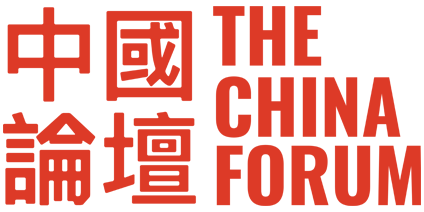China Forum 2023
China Forum is an annual conference in Washington, D.C. convening scholars, experts, and policymakers in the areas of trade and economics, foreign policy and security, and human rights and political development. The goal of China Forum is to help Americans understand the nature of the People’s Republic of China, the Chinese Communist Party, and key issues in U.S.-China relations.
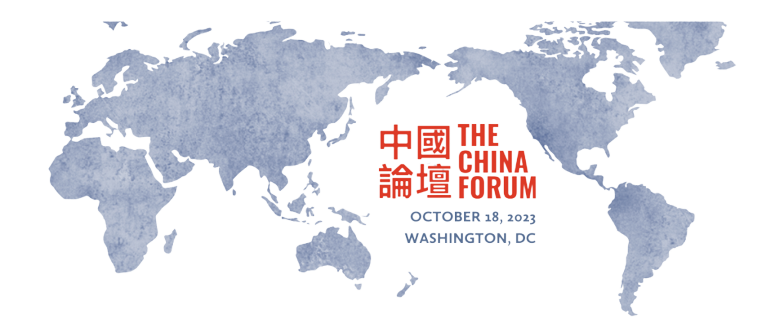
China Forum Agenda 2023
- Tuesday, October 17
Panel and Film Screening
- 3:30 – 6:30 PM
-
Victims of Communism Museum
900 15th Street NW
Washington, D.C. 20005
Reception
- 3:30 – 4:00 PM
Welcome
- 4:00 – 4:02 PM
- Karina Lipsman, Director of Government Relations, Victims of Communism Memorial Foundation
Opening Remarks
- 4:03 – 4:08 PM
- Ambassador Andrew Bremberg, President, Victims of Communism Memorial Foundation
Film Screening: “China: The Uyghur Tragedy,” directed by Romain Franklin and François Reinhardt
- 4:10 – 5:05 PM
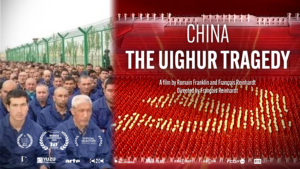
Panel Discussion: “Beijing’s Ongoing Repression of the Uyghurs”
- 5:05 – 6:05 PM
- Dr. Adrian Zenz, Senior Fellow in China Studies, Victims of Communism Memorial Foundation (moderator)
- Rushan Abbas, Executive Director, Campaign for Uyghurs
- Romain Franklin, Co-Director, "China: The Uyghur Tragedy"
- Elfidar Iltebir, President, Uyghur American Association
- Anastasia Lin, Actress and Human Rights Activist
- Wednesday, October 18
China Forum 2023
- 8:30 AM – 5:00 PM
- The Mayflower Hotel
-
1127 Connecticut Ave NW
Washington, D.C. 20036
Coffee & Registration
- 8:30 – 9:00 AM
Opening Remarks
- 9:00 – 9:12 AM
- Dr. Elizabeth Spalding, Chairman, Victims of Communism Memorial Foundation
- Ambassador Andrew Bremberg, President, Victims of Communism Memorial Foundation
- Dr. Adrian Zenz, Director and Senior Fellow in China Studies, Victims of Communism Memorial Foundation
Remarks from US Congress Members
- 9:12 – 9:25 AM
- Rep. Mike Gallagher (R-WI), Chairman, House Select Committee on China
- Rep. Raja Krishnamoorthi (D-IL), Ranking Member, House Select Committee on China
Keynote Address
- 9:25 – 9:45 AM
- Matthew Pottinger, Distinguished Visiting Fellow, Hoover Institution and China Program Chairman, Foundation for Defense of Democracies
Uyghur Forced Labor: Dissecting Beijing’s Systems of Coercive Work for Ethnic Minorities
- 9:50 – 11:20 AM
This panel will discuss Beijing’s forced labor schemes targeting ethnic minority and rural workers, including industry-based forced labor in sectors such as cotton, tomatoes, and polysilicon, coercive labor transfer of rural surplus workers, and forced labor linked to the Xinjiang internment camps. Panelists will discuss issues and challenges surrounding the implementation of the Uyghur Forced Labor Prevention Act (UFLPA). The panel will highlight recent developments in research on how forced labor risk enters global supply chains from China, implicating western businesses in Beijing’s human rights atrocities, as well as research-based policy responses for governments and businesses.
- Dr. Adrian Zenz, Director and Senior Fellow in China Studies, Victims of Communism Memorial Foundation
- John Foote, Partner, Kelly Drye & Warren LLP
- Brian Hoxie, Director, Forced Labor Division, Trade Remedy Law Enforcement Directorate, Office of Trade, U.S. Customs & Border Protection
- Louisa Greve, Director of Global Advocacy, Uyghur Human Rights Project
Power and Responsibility: How Beijing’s Human Rights Record is Shaping Diplomacy and Foreign Policy
- 11:25 AM – 12:45 PM
- Ambassador Andrew Bremberg (moderator), President, Victims of Communism Memorial Foundation
- Jude Blanchette, Freeman Chair in China Studies, Center for Strategic and International Studies (CSIS)
- Ambassador Kelley Currie, Senior Fellow, Atlantic Council
- Matthew Turpin, Visiting Fellow, Hoover Institution
From the halls of Brussels and Washington to Geneva and New York, Beijing is increasingly being scrutinized for its human rights record, hindering its efforts to present itself as an emerging great power and responsible player on the world stage. Western diplomats and policymakers are thus rethinking China’s role in major spheres of multilateral cooperation, from the United Nations and the European Union to diplomatic efforts around Ukraine, Hong Kong, and Taiwan. This panel will assess Beijing’s multi-pronged strategy to make the world “safe for autocracy,” fend off criticisms of its human rights practices, and influence international bodies in ways that undermine the principles of democratic governance. Experts will discuss available tools and specific actions the US and its allies can take to address this challenge.
Luncheon
- 1:00 – 2:00 PM
The Price of Profits: How Western Businesses Remain Entangled in China’s Forced Labor, Surveillance State and Military Modernization
- 2:00 – 3:20 PM
As evidence continues to mount showing how Beijing’s human rights abuses are linked to global markets, western businesses are under increasing pressure to “de-risk” their supply chains and fully comply with new legislation such as the Uyghur Forced Labor Prevention Act. This panel will discuss how companies and investors find themselves supporting human rights violations in Xinjiang and China’s problematic economic practices, and how they are dealing with this problem. It will assess Beijing’s use of financial incentives and coercion to co-opt western business, fund its oppression of Uyghurs, strengthen its economy through unfair competition, and influence national governments. Topics will include how Beijing uses western capital markets to finance malign activities such as its surveillance, military modernization, and arbitrary detention, and how governments and businesses can reform due diligence practices to address this challenge.
- Josh Rogin (moderator), Columnist, The Washington Post
- Elaine Dezenski, Senior Director, Center on Economic and Financial Power, Foundation for Defense of Democracies
- Jim Feinerman, Professor of Asian Legal Studies and Faculty Director, Georgetown Center for Asian Law
- Mary Kissel, EVP and Senior Policy Advisor, Stephens Inc. Vice Chairman, RXO, Inc.
Interview and Q&A Session
- 3:20 – 3:40 PM
- Dr. Adrian Zenz, Director and Senior Fellow in China Studies, Victims of Communism Memorial Foundation
- Cai Xia, Editor-in-Chief, Yibao magazine
Coffee Break
- 3:40 – 3:50 PM
Towards Accountability: Pursuing Legal Action on the Xinjiang Atrocity Through International Mechanisms
- 3:50 – 5:20 PM
Despite global condemnation of Beijing’s atrocities in Xinjiang that multiple governments have declared amounts to genocide and crimes against humanity, the Chinese regime continues to maintain its repressive policies under the pretext of counterterrorism. Meanwhile Beijing has used its powerful sway in international bodies such as the UN to prevent initiation of an independent investigative or accountability mechanism such as was possible for recent crimes in Syria, Iraq, and Myanmar. This panel will discuss international legal mechanisms for holding the perpetrators to account, including from multilateral bodies in the UN and The Hague, to national governments imposing Magnitsky-style sanctions or exercising universal jurisdiction. It will assess the status and prospects for specific legal actions, and what is needed from governments and the international community to ensure their success, including effective documentation and analysis of available evidence.
- Lauren Baillie (moderator and presenter), Senior Program Officer, Atrocity Prevention, United States Institute of Peace
- Rodney Dixon, Barrister, Temple Garden Chambers
- Naomi Kikoler, Director, Simon-Skjodt Center for the Prevention of Genocide, US Holocaust Memorial Museum
- Michael Polak, Principal, Justice Abroad
Closing Remarks
- 5:20 – 5:25 PM
- Ambassador Andrew Bremberg, President, Victims of Communism Memorial Foundation
China Forum 2022
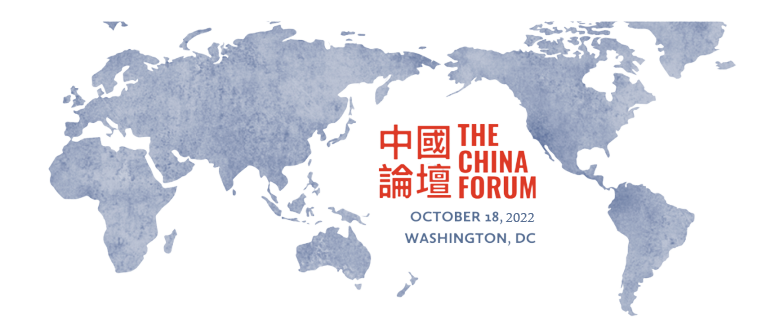
- TUESDAY, DECEMBER 5
In Search of My Sister Film Screening
Filmed in over a dozen countries, “In Search of My Sister” is a story of an American Uyghur Activist whose sister is one of 1.8-3 million Uyghurs taken by the Chinese Communist Party. She embarks on a journey to create awareness and find clues to the whereabouts of her missing sister.
- 9:00 AM - 5:00 PM
- Victims of Communism Museum 900 15th Street NW Washington, D.C. 20005
- TUESDAY, DECEMBER 6
China Forum 2022
- 9:00 AM - 5:00 PM
- 1127 Connecticut Avenue, NW Washington, D.C. 20036
Welcome Remarks
- 9:00 AM
- Amb. Andrew Bremberg, President, Victims of Communism Memorial Foundation
Uyghur Forced Labor and Prevention: New Trends in Coercive Labor and the Duties of Business
- 9:00 AM
NOTE: This panel will adhere to Chatham House rules. The discussion will be off-the-record and will not be live-streamed.
In June 2022 the United States banned the import of all goods linked to Xinjiang due to the region’s systematic, state-sponsored forced labor systems, through the Uyghur Forced Labor Prevention Act (UFLPA). Recently Xinjiang has embarked on a program to deepen the reach of forced labor through increased full employment requirements. Which goods and sectors can be implicated in forced labor? How has enactment of the UFLPA, and the enforcement measures applied to date, impacted US-China supply chains? Can the Act effectively contain the import of goods whose production is linked to Xinjiang, or are Chinese businesses successfully avoiding the ban? Can supply chain regulations catch up with the evidence? This panel will also address business due diligence issues such as how Xinjiang companies may be evading sanctions, supply chain risks related to intermediary countries especially in Asia, and how the business community is responding amid these developments.
- Irina Bukharin, Program Director for Human Security, Center for Advanced Defense Studies
- John Foote, Partner, Kelly Drye & Warren LLP
- Shelly Heald Han, Chief of Staff and Director of Engagement, Fair Labor Association
- Virginia Wake, International Trade Specialist, Forced Labor Division, U.S. Customs and Border Protection
- Adrian Zenz, Director and Senior Fellow in China Studies, Victims of Communism Memorial Foundation (moderator)
Beginning of Public Livestream
Opening Remarks
- 10:40 AM
- The Hon. Edwin J. Feulner, Ph.D., Chairman, Victims of Communism Memorial Foundation
- Ambassador Andrew Bremberg, President, Victims of Communism Memorial Foundation
- Adrian Zenz, Director and Senior Fellow in China Studies, Victims of Communism Memorial Foundation (moderator)
Keynote Address
- 10:55 AM
- Daniel Tobin, China Studies Faculty, National Intelligence University
Entanglement and Dependencies: Addressing the Challenges of Economic Integration With China
- 11:20 AM
Beijing has leveraged China’s economic power and integration with global markets to expand its global influence and reduce criticism of its human rights violations. Business relationships with China increasingly implicate rights-respecting countries and companies in Beijing’s human rights abuses, military modernization, and surveillance state. This panel will discuss the moral and strategic costs of doing business with China, the challenges of disentangling from problematic financial ties, and explore approaches toward strategic forms of decoupling from related entanglements.
- Claire Chu, Senior Analyst, Janes Group
- The Hon. Nazak Nikakhtar, Partner, Wiley Law
- Michael Sobolik, Fellow in Indo-Pacific Studies, American Foreign Policy Council
- Ana Swanson, Trade and International Economics Writer, New York Times (moderator)
Global Governance: World Order With Chinese Characteristics?
- 10:45 AM – 11:45 AM
- Peter Mattis, Director of Research and 123Analysis, Special Competitive Studies 123Project
- David Sauer, Retired CIA Officer Miles Yu, Ph.D., Professor of History, 123U.S. Naval Academy
- Amb. Andrew Bremberg, President and CEO, 123Victims of Communism Memorial 123Foundation (moderator)
Luncheon
- 12:40 PM – 1:40 PM
Chains of Command: Beijing’s Policymaking on Xinjiang and the Direction of Ethnic Policy Under Xi Jinping
- 1:40 PM
Internal documents from the leaked “Xinjiang Papers” and hacked “Xinjiang Police Files” shed unprecedented new light on the nature, scale, and driving forces behind Beijing’s campaign of mass internment. This panel will discuss what the latest evidence reveals about Beijing’s increasingly draconian ethnic policies in particular in Xinjiang, including their genesis and development, their nature and intent, the extent of central government involvement, and their future direction under Xi Jinping. It will discuss the latest developments in ethnic policy for sensitive groups such as Uyghurs or Tibetans, and assess how unprecedented developments in Xinjiang may be influencing policies in other sensitive ethnic regions.
- James Millward, Professor of Intersocietal History, Walsh School of Foreign Service, Georgetown University
- Sean Roberts, Professor of the Practice of International Affairs, Elliott School of International Affairs, George Washington University
- Suisheng Zhao, Professor and Director, Center for China-US Cooperation at Josef Korbel School of International Studies, University of Denver
- Adrian Zenz, Director and Senior Fellow in China Studies, Victims of Communism Memorial Foundation (moderator)
Interview and Q&a Session
- 3:00 PM
- Cai Xia, Editor-in-Chief, Yibao magazine
- Adrian Zenz, Director and Senior Fellow in China Studies, Victims of Communism Memorial Foundation (interviewer)
Global Ambitions: Beijing’s Foreign Policy and Power Projection
- 3:30 PM
Under Xi Jinping, Beijing’s foreign policy has taken a coercive turn, and its attempts to influence global norms and institutions in line with its global ambitions have become more overt. China’s economic coercion toward other countries, unprecedented military aggression towards Taiwan, and quiet backing of Putin’s land war Ukraine have amplified existing concerns over the ascending superpower’s role within the global community. What are the implications for international relations? What is needed to defend and strengthen a rules-based global order? This panel will assess China’s means of power projection and explore research-driven counter-strategies and responses.
- Michael Auslin, Payson J. Treat Distinguished Research Fellow in Contemporary Asia, Hoover Institution
- Emily de La Bruyère, Co-Founder, Horizon Advisory
- Craig Singleton, China Program Deputy Director and Senior Fellow, Foundation for Defense of Democracies
- Ambassador Andrew Bremberg, President, Victims of Communism Memorial Foundation (moderator)
Closing Remarks
- 4:50 PM
- Amb. Andrew Bremberg, President, Victims of Communism Memorial Foundation
China Forum 2021
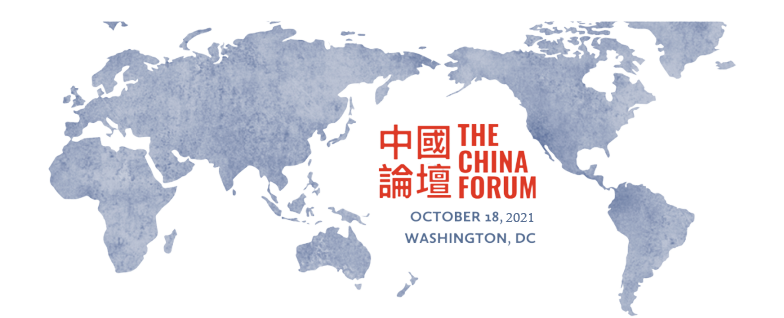
China Forum Agenda 2021
- WEDNESDAY, OCTOBER 27
China Forum 2021
- 9:00 AM - 3:30 PM
- Victims of Communism Museum 900 15th Street NW Washington, D.C. 20005
Opening Remarks
- 9:00 AM – 9:45 AM
- Amb. Andrew Bremberg, President, Victims of Communism Memorial Foundation
- Edwin J. Feulner , Ph.D., Chairman, Board of Trustees, Victims of Communism Memorial Foundation
- Michael Pillsbury, Ph.D., Senior Fellow and Director for Chinese Strategy, Hudson 1 Institute
Technology, Authoritarianism, and Big Tech’s Compliancy
- 9:45 AM – 10:45 AM
- Emily de La Bruyère, Co-Founder, Horizon 123Advisory
- Ian Easton, Senior Director, Project 2049 123Institute
- Nathan Picarsic, Co-Founder, Horizon 123Advisory
- Adrian Zenz, Ph.D., Senior Fellow and 123Director, China Studies, Victims of 123Communism Memorial Foundation 123(moderator)
Global Governance: World Order With Chinese Characteristics?
- 10:45 AM – 11:45 AM
- Peter Mattis, Director of Research and 123Analysis, Special Competitive Studies 123Project
- David Sauer, Retired CIA Officer Miles Yu, Ph.D., Professor of History, 123U.S. Naval Academy
- Amb. Andrew Bremberg, President and CEO, 123Victims of Communism Memorial 123Foundation (moderator)
China’s Frontiers: The Ccp and Colonial Legacies
- 11:45 AM – 12:45 PM
- Bhuchung Tsering, Interim President, 123International Campaign for Tibet
- James Millward, Ph.D., Professor of Inter- 123societal History, Walsh School of Foreign 123Service, Georgetown University
- Jeffrey Ngo, Hong Kong Activist Historian and 123Ph.D. Candidate, Georgetown University
- Olivia Enos, Senior Policy Analyst in the Asian 123Studies Center, The Heritage Foundation 123(moderator)
LUNCHEON
- 12:45 PM – 1:30 PM
Supply Chain and Forced Labor
- 1:30 PM – 2:30 PM
- Allison Gill, Forced Labor Director, Global 123Labor Justice International Labor Rights 123Forum
- Michael Sobolik, Fellow in Indo-Pacific Studies, 123American Foreign Policy Council
- Adrian Zenz, Ph.D., Senior Fellow and Director,123China Studies, Victims of Communism 123Memorial Foundation
- Ethan Gutmann, Research Fellow in China 123Studies, Victims of Communism Memorial 123Foundation (moderator)
Finance: The Myth of Chinese Financial Hegemony
- 2:30 PM – 3:30 PM
- William Browder, CEO, Hermitage Capital 123Management
- Dexter Roberts, Senior Fellow, Atlantic 123Council
- Roger Robinson, President and CEO, RWR 123Advisory Group
- Jillian Melchior, Writer, Wall Street Journal 123(moderator)
Closing Remarks
- 3:30 PM
- Amb. Andrew Bremberg, President, Victims of Communism Memorial Foundation
